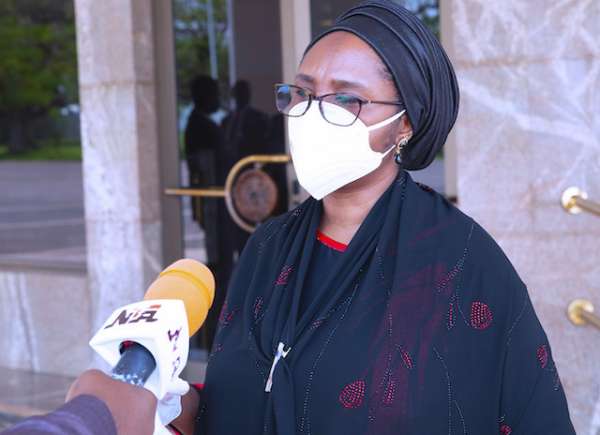The federal government has borrowed a whopping N8.29 trillion from Pension Fund Assets which stood at N12.9 trillion at the end of August 2021, LEADERSHIP revealed.
Even though an earlier attempt by the federal and state governments to borrow directly from the pension funds was met by a stiff public resistance, thus nipping the idea in the bud, the federal government has continued to dominate in utilisation of the pension pension funds’ assets, howbeit indirectly through investment in federal government securities.
The federal government, through the National Economic Council (NEC), had in 2019 announced plans to borrow N2 trillion from the pension funds to finance the development of infrastructure. The decision sparked a lot of backlash as Nigerians unanimously kicked against the move. Had the plan worked, it would have become the norm for governments to borrow directly from the pension funds.
Pension fund investment in federal government securities still accounted for the bulk of 64 per cent of total pension fund assets, crowding out investments in other sectors of the economy, even as it dropped by about N220billion from N8.51trillion in July, 2021 to N8.29 trillion as of the end of August 2021.
The drop, according to LEADERSHIP investigation, was as a result of drop in yield of bonds and treasury bills, which started last year, hence, Pension Fund Administrators (PFAs) were divesting from this investment outlet, into better investment windows that give better returns.
Pension fund operators have been seeking investment alternatives besides government bonds and treasury bills to increase returns on investment on pension assets as yields from FGN securities decline.
Hence, as the previous investment matured, pension fund operators were divesting the proceed in money and capital market instruments.
Similarly, the embargo placed on PFAs in 2019 by the Central Bank of Nigeria (CBN) not to trade in OMO bills were equally responsible for this drop, with PFAs liquidating their matured bills and taking the proceed into another investment outlets.
LEADERSHIP findings revealed that the N8.2trillion investment in federal government securities translates to 64 per cent of the entire N12.9 trillion pension assets.
LEADERSHIP analysis shows that treasury bill was also responsible for this drop as investment in treasury bills nosedived from N439 billion in July, 2021 to N410 billion in August, 2021.
Since the inception of the Contributory Pension Scheme (CPS) in 2004, 60 to 70 per cent of the entire pension fund assets has always been invested in FG securities which include bonds and treasury bills.
This is even as the pension fund assets had risen to N12.9trillion as of the end of August 2021, jumping from N12.78 trillion in July 2021. This shows a growth of N120 billion within one month.
However, the pension fund managers’ investment in federal government securities has allowed the government to fund its expenditure as well as embark on some capital projects through this local borrowing.
To this end, a document sourced from the National Pension Commission (PenCom) recently shows that as of the end of August 2021, of the N8.29 trillion invested in FG securities, N7.78 trillion was invested in FGN bonds; N410 billion was invested in treasury bills; Sukuk bond gulped N73.8billion; N88 billion in state government securities; Agency bond investment was N14.5 billion and Green bond gulped N11 billion.
The consistent rise in the volume of the nation’s pension assets, according to LEADERSHIP investigation, was attributable to new pension contributions received, interest from fixed income securities and net realised on equities and mutual fund investments.
Investment income, according to LEADERSHIP investigation, was instrumental to the continuous growth in pension fund, despite the fact that government at the state and federal levels are not paying the monthly pension contributions of their workers as and when due.
The director general, National Pension Commission (PenCom), Mrs. Aisha Dahir-Umar, said the growth in the pension fund assets under the new pension scheme is an indication of prudent and sincere management of the pension fund by the pension operators and the regulator.
LEADERSHIP





